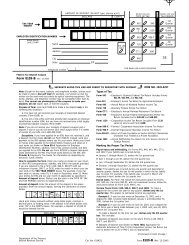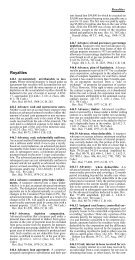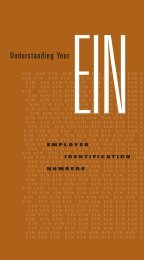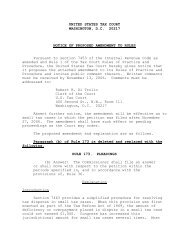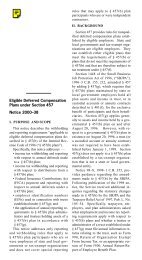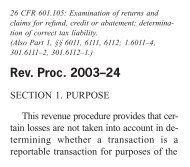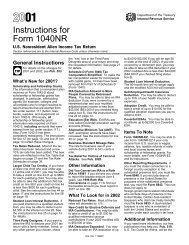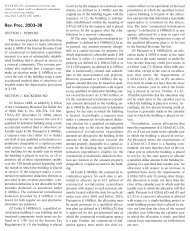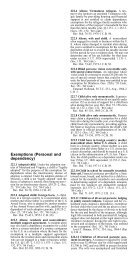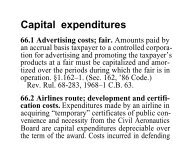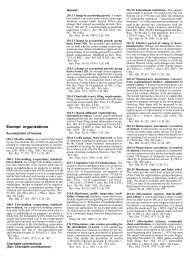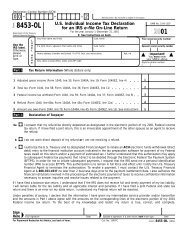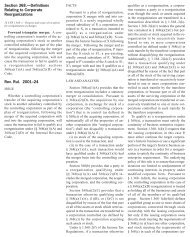Auto Dealerships - Audit Technique Guide - Uncle Fed's Tax*Board
Auto Dealerships - Audit Technique Guide - Uncle Fed's Tax*Board
Auto Dealerships - Audit Technique Guide - Uncle Fed's Tax*Board
You also want an ePaper? Increase the reach of your titles
YUMPU automatically turns print PDFs into web optimized ePapers that Google loves.
Once the insurance company has established a reserve based o the dealership claim experience, the<br />
retro typically is calculated and payable on an annual basis, with a negative amount carried over<br />
and offset against a future positive amount. The percentage of the profit that is shared can be up<br />
to 100 percent. In this case the insurance comply retains an administrative fee and earns<br />
investment income, while the dealership receives all of the underwriting profit.<br />
There are a number of issues that an agent could raise dependent upon the facts and<br />
circumstances a particular situation.<br />
1. Is the underlying reason behind a retrospective arrangement to circumvent a state-imposed<br />
cap on commissions generated from the sale of credit life and disability insurance? If yes,<br />
consider reclassifying the arrangement as a commission contract.<br />
2. Is the retrospective payment diverted from the dealership and not reported as income by the<br />
dealership or the dealer? In one situation, the retrospective arrangement was negotiated<br />
separately by the dealer. No one at the dealership was aware of the arrangement. All<br />
payments were sent individually to the dealer at his place of residence.<br />
3. Is the timing of the retrospective payment properly accrued by the dealership, considering the<br />
all events test?<br />
4. Is there an "oversubmitted" aspect of the original premium that is held in a related escrow or<br />
reserve account? How did the dealership treat this "oversubmit" and who ultimately receives<br />
it?<br />
5. What access does the dealer have to the reserve? If any, is there corporate separateness<br />
between the insurance company and the dealership. See Moline Properties, 319 U.S. 436,<br />
63 S. Ct. 1132.<br />
6. Is the "retro" arrangement a disguised form of self-insurance?<br />
The decision in Malone & Hyde, Inc., above, greatly impacts this section. In addition to the<br />
issues developed above, the following is a listing of other recommended issues to consider with<br />
PORCs (dependent upon the facts and circumstances), developed jointly between the Motor<br />
Vehicle Industry Specialist and the Captive Issue Specialist (not in any particular order and note<br />
that some of these may be factors favoring assertion of one or more of the other issues to be<br />
raised):<br />
1. Substance versus form (Gregory v. Helvering, 293 U.S. 465 (1935))<br />
2. Assignment of income doctrine / IRC section 61 / Lucas v. Earl, 281 U.S. 111 (1930) ’to<br />
hang the fruit on the tree from which it came’<br />
13-11



